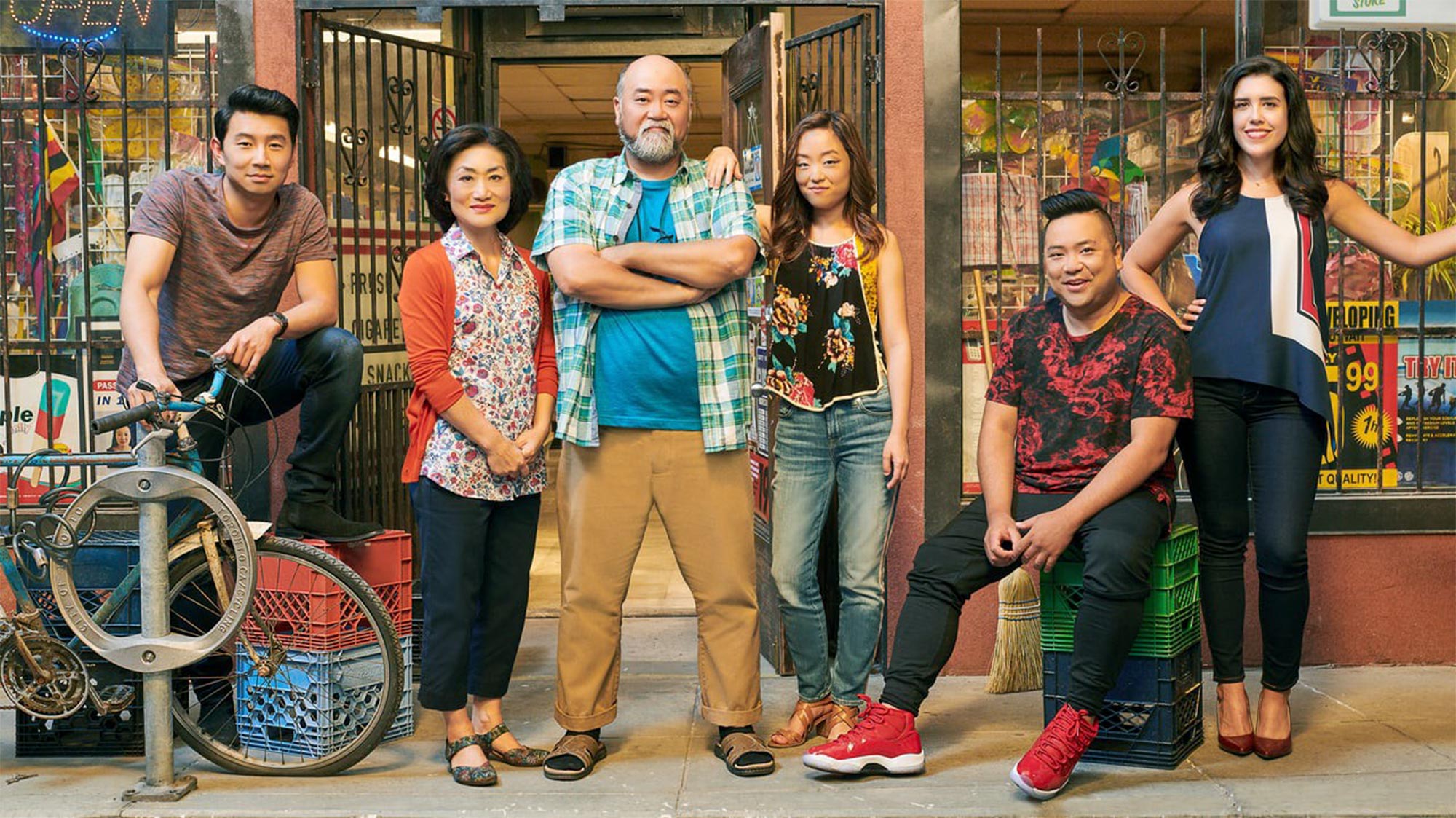On March 31, 2020, CBC announced that Kim’s Convenience—their fan-favourite sitcom—had been renewed for two more seasons. Less than one year later, on March 8, 2021, fans around the world were shocked when the network announced that the fifth season of Kim’s Convenience would be its last. The confusion set in immediately, with many wondering why a network would cancel such a highly-rated and well-received popular comedy so abruptly. Although the decision—made by producers because co-creators Ins Choi and Kevin White were leaving for other projects—may seem justified, it is a risky move nonetheless. To end a show in its prime, particularly one that represents an underrepresented racialized group, seems like a major blunder for CBC. Yet it was exactly the show’s own risks—from its unconventional casting approaches to its radical plot choices—that made it popular and that will ultimately cement it in Canadian cultural consciousness.
When Kim’s Convenience first aired in 2016, the cultural winds of Canadian TV were sweeping in; Schitt’s Creek had already been on air for a year, and Workin’ Moms and Anne with an E were in production. But unlike its contemporaries, Kim’s Convenience had no connection to previous Canadian successes with which the network nor the showrunners could use to bolster the show’s reputation. Instead, Kim’s Convenience originated from humble beginnings: It was first a play starring Paul Sun-Hyung Lee and Jean Yoon, who would reprise their roles as “Appa” Sang-il and “Umma” Yung-mi on television. Meanwhile, Schitt’s Creek had Eugene Levy and Catherine O’Hara, Workin’ Moms had Catherine Reitman, and Anne with an E had author Lucy Maud Montgomery’s international reputation. Alongside Lee and Yoon were talented, then-unknown actors ready to make their breakthrough: Andrea Bang and Simu Liu, who play Lee and Yoon’s children Janet and Jung, and supporting actor Andrew Phung, who plays Kimchee, pursued atypical acting post-secondary education in psychology, business, and economics respectively.
Five years later, the virtually no-name cast won consistently at the Canadian Screen Awards, with Lee winning twice for Best Actor in a Comedy Series in 2017 and 2018, and Deidre Bowen and Millie Tom winning Best Achievement in Casting in 2017. Further, Liu is set to become the first Asian actor to lead a Marvel film in Shang-Chi and the Legend of Ten Rings, and Phung and Nicole Power have new shows in the works. Even though choosing actors from different experiential backgrounds can be risky for a major network sitcom, each actor entered the show with a drive that allowed them to embody their characters, displaying the power of a robust cast.
Beyond the deft acting, Kim’s Convenience represented Canada and Toronto’s diversity. The show centres around the Kims, a Korean-Canadian family who operate their titular convenience store in the Moss Park neighbourhood in Toronto. On the one hand, the show’s navigation of immigrant family dynamics and its exploration of racialized identities in a Western context accurately reflect the lived experiences of many living in Toronto, where half of the population is foreign-born, and another half is racialized. Yet, Kim’s Convenience did not make the same mistakes as its predecessors, like All-American Girl, which universalized individual experiences and made stereotypical jokes about accents.
The show abided by routine sitcom procedures like cold opens and running plot points throughout while also tieing in issues like racism, family tensions, and aging. The pilot episode started off on this deft footing: Overwhelmed by the crowds at Toronto Pride, Mr. Kim offers a “gay discount” and learns about drag while Mrs. Kim posts an ad for a cool, Korean, Christian boyfriend for Janet. From that point on, the showrunners were able to marshal in a new era of Canadian television, one that celebrates a unique Korean-Canadian experience.
Whether it be street car rides that showcase Toronto architecture, Janet’s education at the OCAD University, or jabbing at Muskoka cottage culture, the show lives and breathes a more accurate picture of Toronto and Canada. Kim’s Convenience may have been cancelled, but its impact on Canadian cultural formation will live on.
The finale of Kim’s Convenience will air on April 13.









